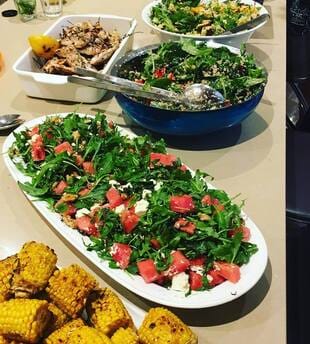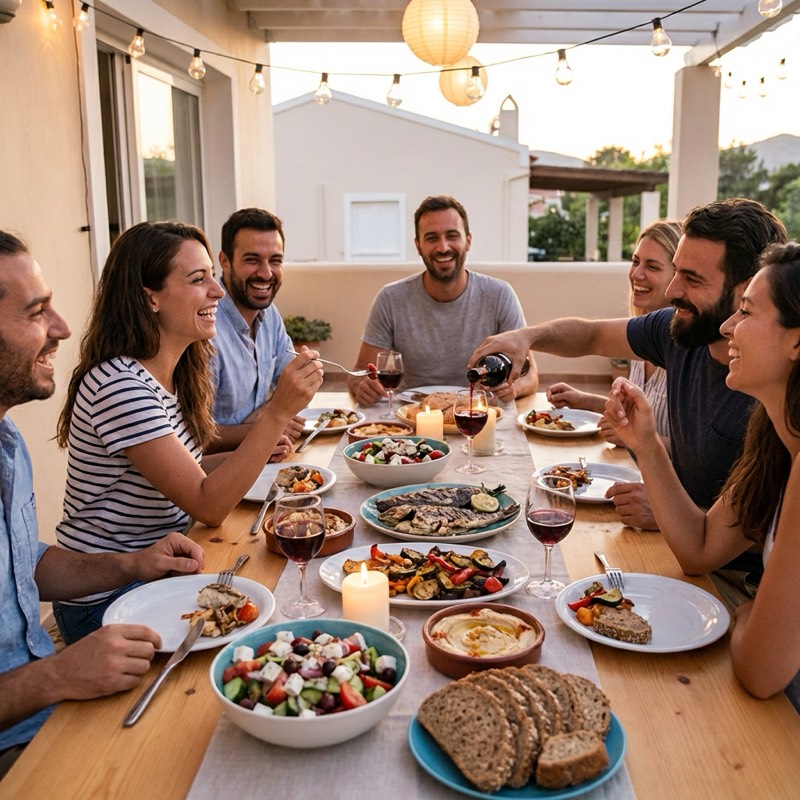
Nicole Bando, APD, IBCLC
It’s a privilege to be allowed to glimpse into a person’s life, family, thoughts and vulnerabilities. When discussing weight, health and body image, these aspects are so closely intertwined, that to really understand someone’s dietary choices, you must first understand them. Celebrations, eating out and socialising are a part of our lives and learning how to manage these occasions makes a big difference to your everyday health. Though it can be tricky to make informed choices at times of temptation and plenty, we can learn how to integrate these parts of our lives to create a balanced approach.
I read an article by The Age columnist, Jessica Irvine on the weekend, which really spoke to me of this concept. It highlighted how in every possible way, we live in a modern society of excess; of consumerism, objects, stuff, and of course, food. There is so much choice and availability all the time, that it can start to feel like our only choice is to consume.
So there’s the clincher; choice. I don’t want to be reductionist about health and weight management. I understand the complexities; the psychological, medical, genetic, environmental and physical factors associated with health decisions. However, if we focus on our choices in a given situation and how we can learn to make better ones, we start seeing longer term shifts in health outcomes such as weight, blood pressure, blood sugar levels, and importantly, how we feel about ourselves. It’s a good time to consider how to live and derive pleasure from special occasions, without jeopardising what is of utmost importance; our own precious health. This is possible, even when three course meals are on offer for days in a row.
Forward plan: List every occasion over the next week and be strategic with meals and snacks on those days. Is it a big lunch you are feeling concerned about?
Have a good breakfast – oats with berries and yoghurt, or eggs on multigrain with tomato and do something active (go for a walk or gym class). In other words, set yourself up to make healthy, informed and sound decisions.
Consider what will be on offer:
if going out, check the menu in advance and make the best decision you can. If at someone’s home, you may have an idea of the fare. When you arrive, scope out what is available decide what you would really love to eat. Please, enjoy it. By allowing yourself to do so and letting go of dieting ‘rules’, such as ‘no bread or pasta or dessert,’ you will immediately make better choices. This doesn’t mean lose all barometer of fullness and go crazy; it means – give yourself the permission to taste, nourish and celebrate, whilst listening and ultimately respecting your body. Take a plate and load up on salads or vegetables, choose a small amount of the available protein (chicken, meat, fish) and similar size of carbohydrate (pasta, potato, rice). Try to avoid mindless snacking on dip & cheese platters and save room for the main event. If there is a cheese you love, take a small piece with crackers, taste and enjoy it.
Save room for your favourite dessert (mine is my mum’s chocolate cake).
Avoid going back for seconds by eating slowly, check in on how you are feeling. Enjoy a glass of wine if it makes you happy. Move away from the table when done; a family board game or walk around the block might be a welcome distraction.
If you feel uncomfortably full, or have over indulged, avoid the guilt and negative self talk and instead reset at the next meal.
Choose to eat lighter – a salad, or some toast and please do not punish yourself. Food is not tied into moral worth, eating too much does not make a person ‘good’ or ‘bad’, it makes them human. Learning from these times can help us approach the next occasion differently. The ability to reset helps us shift towards a healthy lifestyle approach; it gets easier as time goes on.
Perspective:
One meal in isolation is not going to have a long-term impact, it is when the splurge meals carry on for days or weeks that the impact is greater.
Realistic expectations:
Make healthy choices most of the time, plan regular exercise opportunities and be organised with fresh, seasonal meal ideas and snacks. These are the best steps towards health.
I would love the privilege to help you glow, grow or nurture and develop a healthier relationship with food. My approach is tailored to each individual’s situation. I am available for consults at NEST Family Clinic and booking details can be found at www.nestfc.com.au

